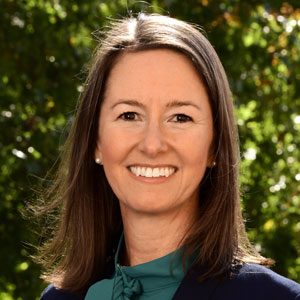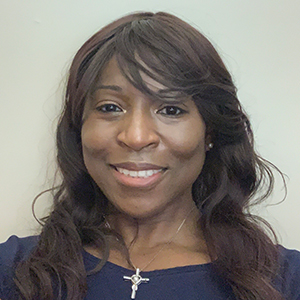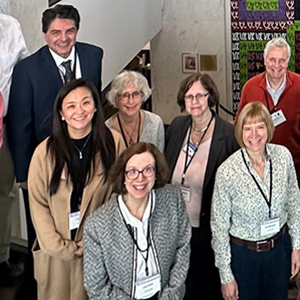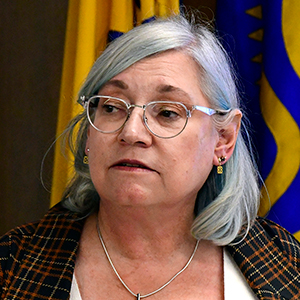NIEHS celebrated Black History Month Feb. 24 by welcoming Samantha-Rae Dickenson, Ed.D., from the National Institutes of Health (NIH) Office of Equity, Diversity and Inclusion (EDI). Dickenson, a principal strategist with EDI, spoke on “Your Best Life Is on the Other Side of Fear: Navigating Life as a Black DEI Practitioner.” Her talk was part of the NIEHS 2021 Diversity Speaker Series.
 “The leadership team within an organization should absolutely take full responsibility for creating inclusive workspaces, but employees can also help promote and create inclusion by invoking allyship,” said Dickenson. (Photo courtesy of Samantha-Rae Dickenson)
“The leadership team within an organization should absolutely take full responsibility for creating inclusive workspaces, but employees can also help promote and create inclusion by invoking allyship,” said Dickenson. (Photo courtesy of Samantha-Rae Dickenson)Dickenson outlined her and colleagues’ work in EDI, as well as her personal journey to this current role. Ericka Reid, Ph.D., welcomed Dickenson and the audience. Reid directs the NIEHS Office of Science Education and Diversity and chairs the Diversity Speaker Series committee.
Danny Dickerson, director of the EDI Division of Inclusion and Diversity, introduced Dickenson and kicked off the event by highlighting his office’s charge. “We try to make sure that all who come to the NIH campus have the same level playing field regardless of race, sexual origin, [and other factors],” he said.
Engage communities, influence change
Dickenson described her role as principal strategist by stating the importance of working with the community she serves to influence. “Engaging communities is very hard work, because it requires that we are first self-reflective,” she said.
Specifically, Dickenson works to identify and eliminate barriers in outreach, recruitment, and employment of Black and African American employees. She also works to build an inclusive workplace where employees can actively use their talents and contribute to the success of NIH.
Dickenson illustrated the importance of her work by referencing “Working While Black: Stories from Black corporate America,” published in June 2020 by Fortune magazine. She pointed to the story of Charlotte, a 37-year-old Black woman who said, “My first manager said that I was too direct, aggressive, and just scary.”
“We know that people across the government sector may share similar experiences,” Dickenson said, noting that the article focused on corporate settings.
Leaps of faith
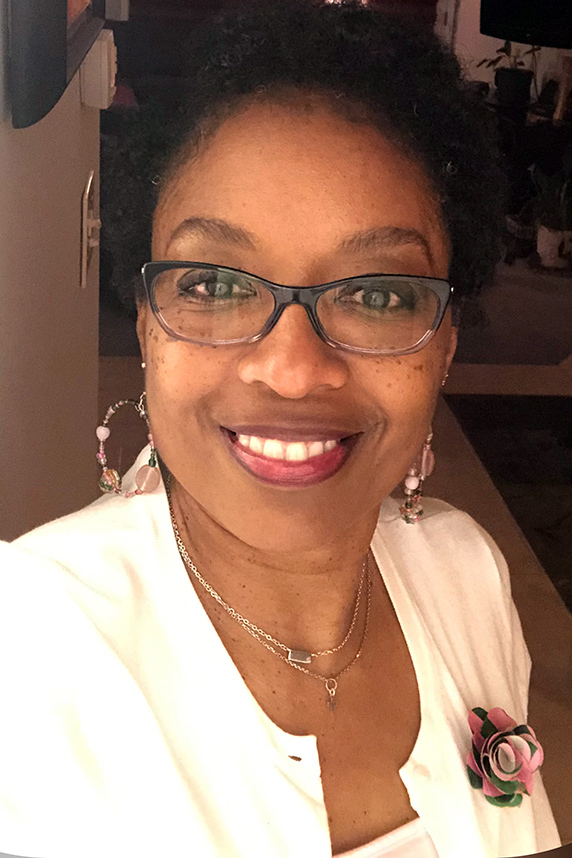 Reid chairs the Diversity Speaker Series committee, which invites speakers throughout the year. (Photo courtesy of Ericka Reid)
Reid chairs the Diversity Speaker Series committee, which invites speakers throughout the year. (Photo courtesy of Ericka Reid)Dickenson’s passion for diversity, equity, and inclusion (DEI) began when she moved to the public health field. While pursuing her master’s degree, Dickenson first realized the disparities in access to resources and health care across racial groups.
Following graduation, she took a leap of faith and moved to Silver Springs, Maryland, to transition to the field of accreditation in higher education. In her new role, Dickenson was one of two Black women in the organization and the youngest employee.
She suggested that these factors contributed to the microaggressions she experienced there. “I was constantly asked about my hair and why I changed my hair so much,” she said. Yet when non-Black colleagues changed their hair, they were complimented instead of questioned. While conducting site visits, “I was often assumed to be the group’s secretary,” she said.
These experiences prompted Dickenson to focus her doctoral research on racial microaggressions Black women face in the workplace. She resigned from her job to fully move into the field of DEI.
The power of allyship
Even though Dickenson experienced microaggressions in her accreditation role, she also came to fully understand the power of allyship (see lower sidebar). Dickenson credits allyship as a key component in an inclusive work environment. It also helped her overcome big hurdles.
“When I look back at incidents that, at the time, I was so scared of and thought were moments of defeat, I see now that they were some of the most significant opportunities in my career and the biggest turning points in my life,” she said.
(Sanya Mehta is a postbaccalaureate Intramural Research Training Award fellow in the NIEHS Matrix Biology Group.)





